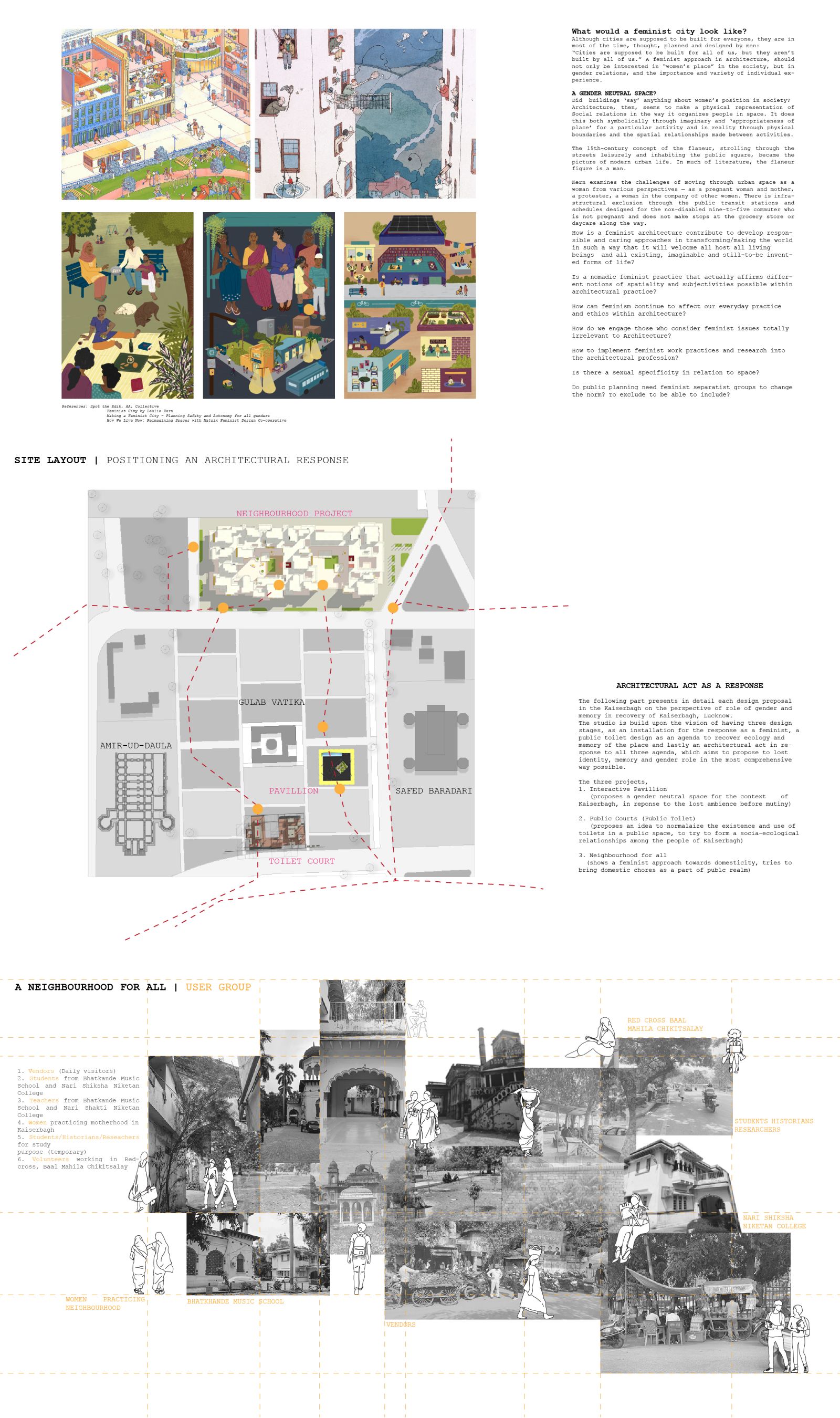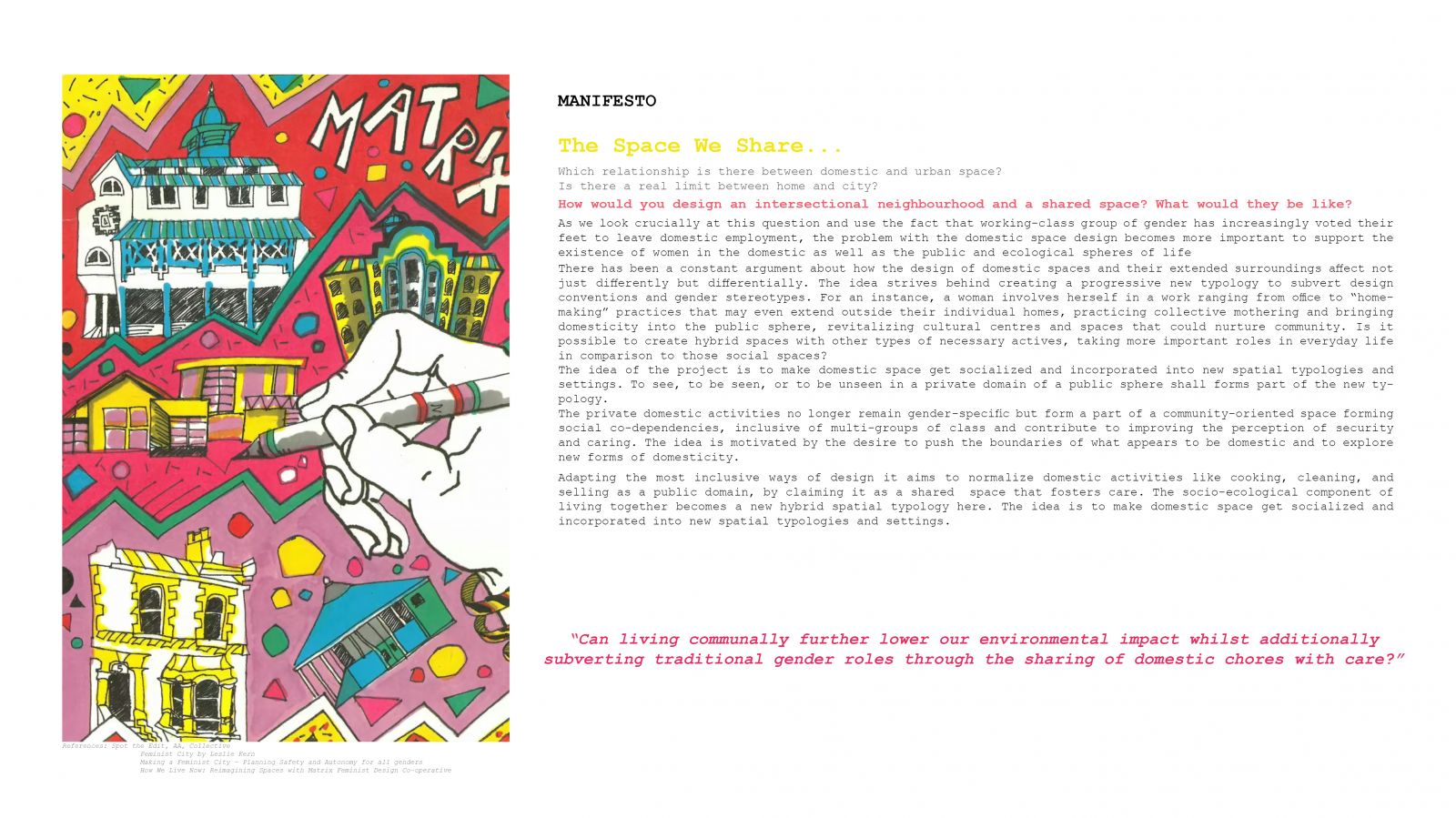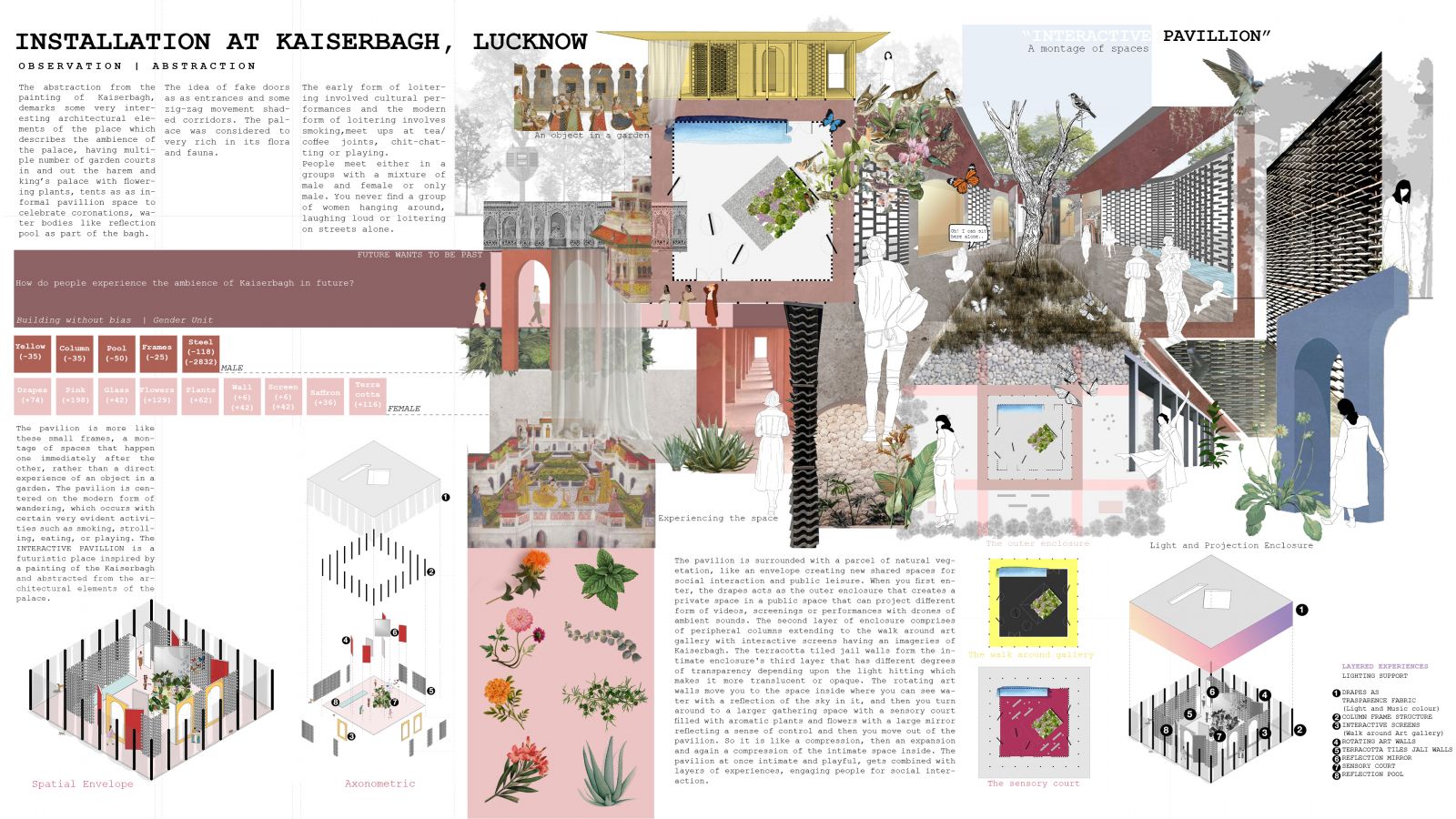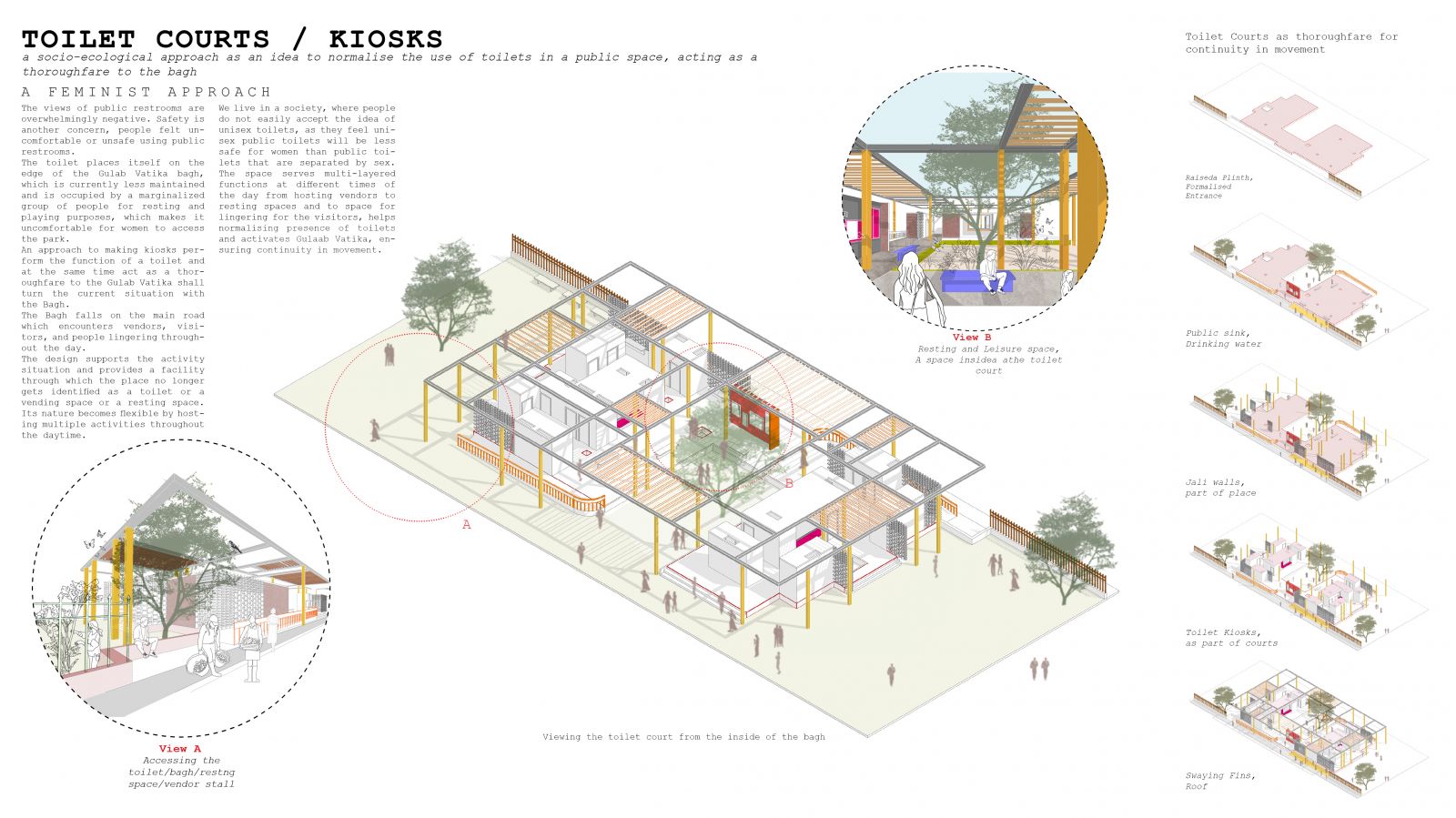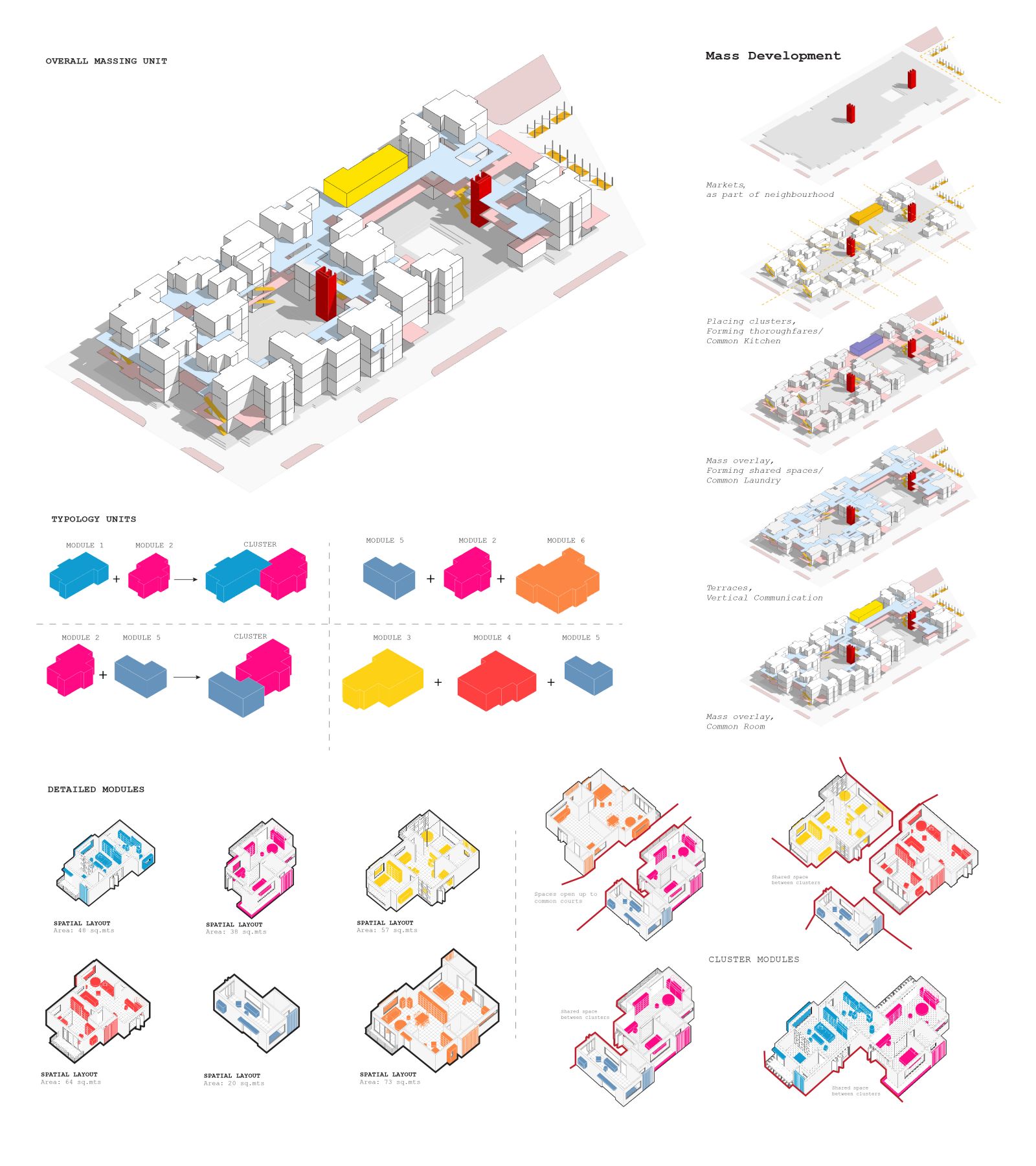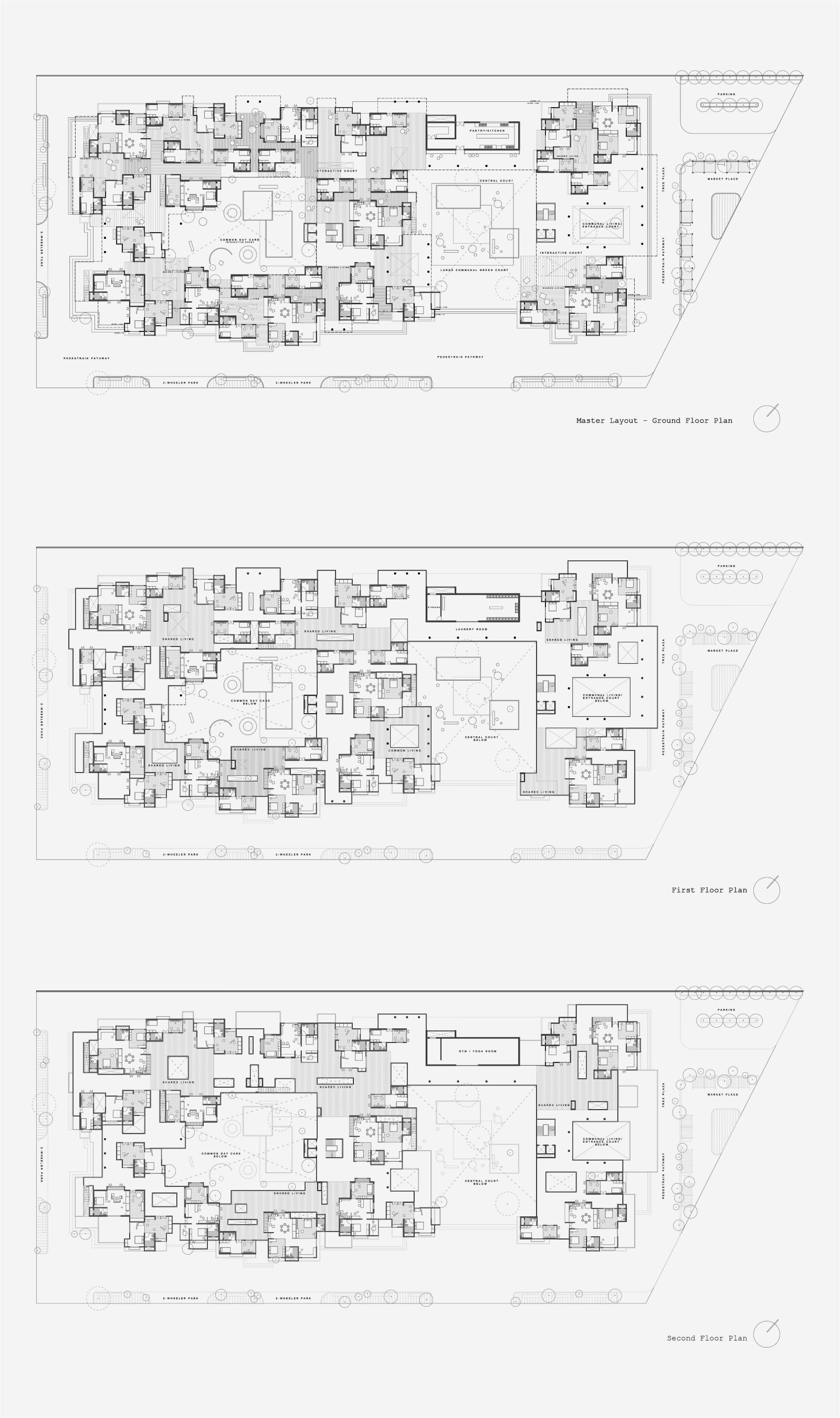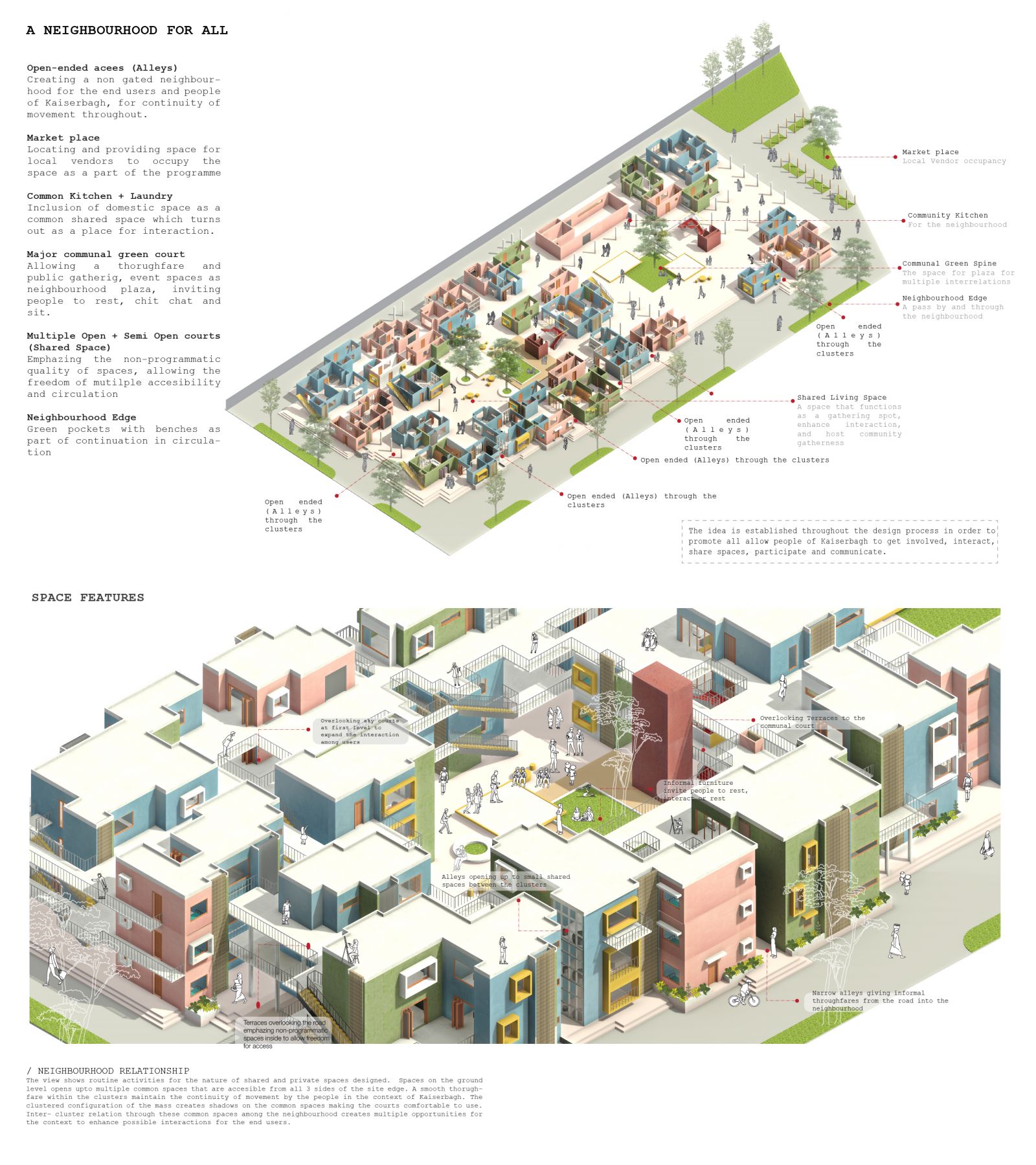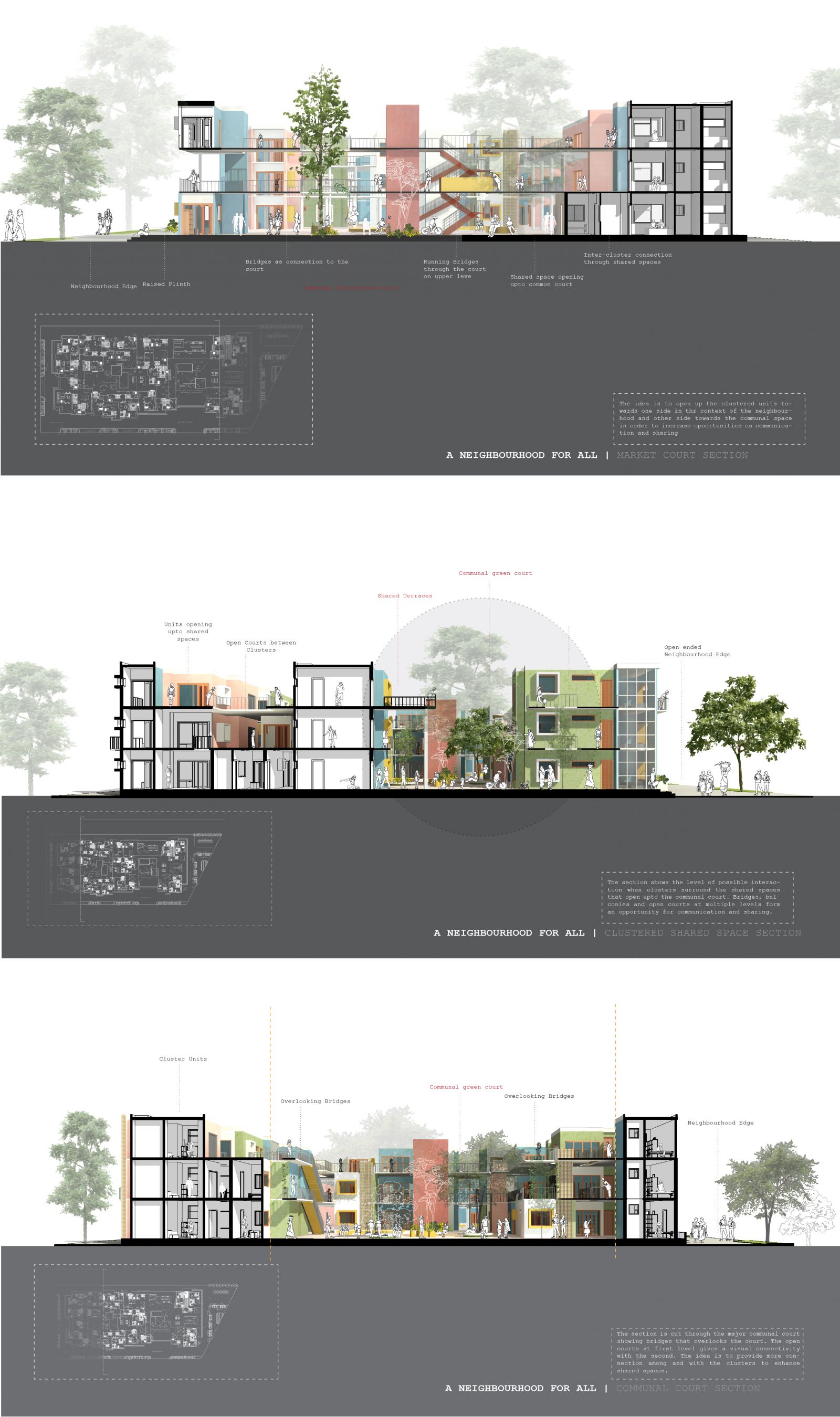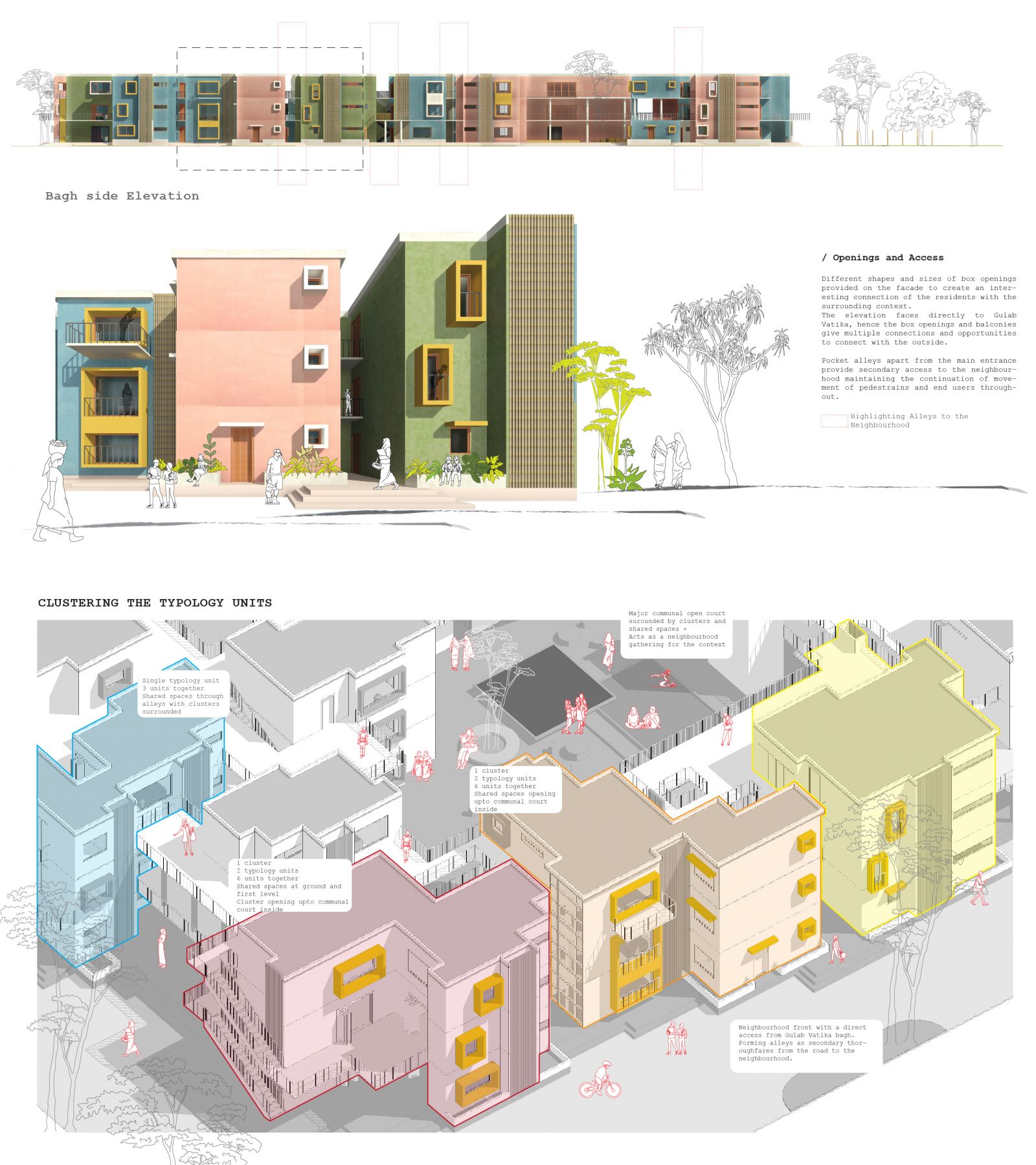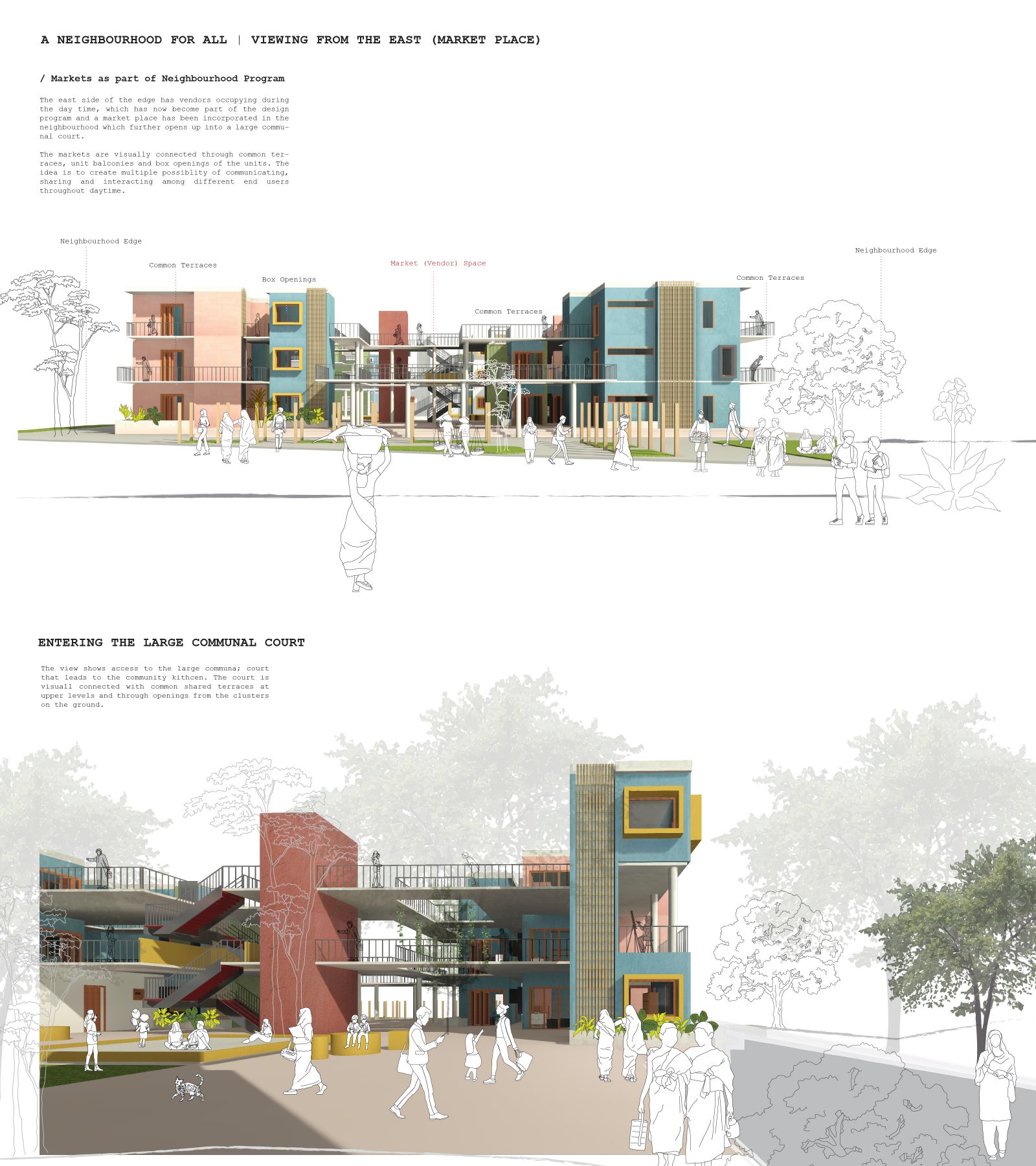- Student JOSHI KINJAL ANIL
- Code PAD21180
- Faculty Architecture
- Unit L4 Studio Unit
- Tutor/s Sonal Mithal
- TA Priyanka Awatramani
The house dissolves itself in the city or the city permeates every dimension of the house. There is a constant argument about how the design of domestic spaces and their surroundings affect not just differently but differentially. The idea strives behind creating progressive new typology to subvert design conventions and gender stereotypes. Is it possible to create hybrid spaces with types of necessary actives, taking more important roles in everyday life in comparison to those social spaces? To see, to be seen, or to be unseen in a private domain of a public sphere forms part of a new typology here. The brief tries to generate an important tool for “rethinking social in architecture where food and care become evenly distributed priorities, where the well-being of all gender groups becomes a collective responsibility. Adapting the most inclusive ways of design it aims to normalize domestic activities like cooking, cleaning, and selling food as a public domain, by claiming it as a shared space that fosters care. The idea is to make domestic space get socialized and incorporated into new spatial typologies and settings. The private domestic activities no longer remain gender-specific but form a part of a community-oriented space forming social co-dependencies, inclusive of multi-groups of class, and contribute to improving the perception of caring and security.
